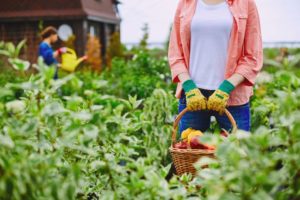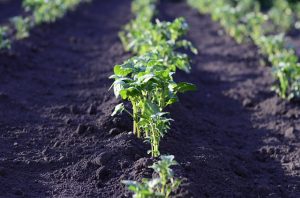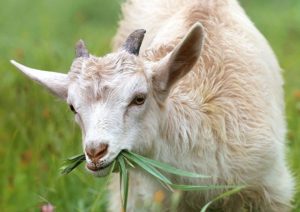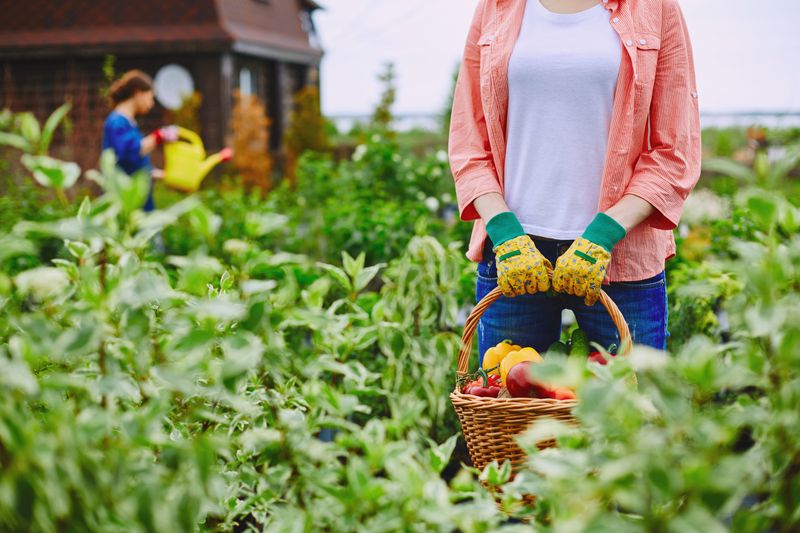So, You have finally decided to step-out into the wonderful and simpler lifestyle of homesteading? After talking your family into starting a homestead, you are ready to begin the journey of growing your own food,  raising chickens and other livestock, making soap, and living a more simplified life. Many people dream of this lifestyle away from the stresses and hectic pace of their current existence.
raising chickens and other livestock, making soap, and living a more simplified life. Many people dream of this lifestyle away from the stresses and hectic pace of their current existence.
Be encouraged, because if you are really ready to start homesteading you are going to absolutely love this journey! So once you have made the decision to go forward with your homesteading dream, the next question is pretty obvious. Now what? Where do you begin and what steps do you initially take? Especially if you have never experienced anything close to living self-sufficiently – or have no knowledge of what homesteading entails.
Well let me tall you how we got started… A great starting point is to start learning how to grow your own vegetables and maintain a garden. You don’t need to start a huge garden. In fact, that would likely be discouraging if you haven’t tended a garden before. If you are limited in space, you can actually begin gardening in containers on your deck or patio. You can even start growing some veggies inside your home using grow lights. The important thing is to begin learning what it takes to maintain your crops.
Let’s say you are successful growing your garden and you are ready to move out to the country and start homesteading for real.
Again, my suggestion is to start small and grow as you become better acquainted with what it takes to manage your homestead.
Our first year we were all motivated and planted so much that we lost half our crop because we couldn’t take care of it all. It was pretty much a disaster. Do not get over-zealous with starting a big homestead if you are just have no clue how to run one. By starting small and adding new animals or features each year, you will have the success and the confidence to move on to bigger animals and better homesteading equipment.
Most homesteaders jump in head first and figure things out as they go. Like any good homesteader, you will likely do the same. That’s part of the joy in the journey! Learn as you go and if you need to learn about how to raise those cute farm animals you’ve been dreaming about, then talk to some people who have livestock. They will be happy to tell you the good and bad. Go to the county fair and inquire where to purchase one and get any tips you need for fencing and animal care. You’ll learn so much more by asking someone that deals with these animals all the time than you would by reading books about it.
Examples of Starting A Small Homestead:
 For instance, if you don’t know anything about growing a garden. Then start with tomatoes, regular and cherry, maybe another vegetable you like to eat, rather than a full-fledged garden. This way, you won’t become overwhelmed and give up halfway through the growing season.
For instance, if you don’t know anything about growing a garden. Then start with tomatoes, regular and cherry, maybe another vegetable you like to eat, rather than a full-fledged garden. This way, you won’t become overwhelmed and give up halfway through the growing season.
The same goes for getting animals for your homestead. Again, my suggestion is to start small if you have no experience with farm animals. You’ll be much happier than if you become overwhelmed right from the beginning. We started with buying a few chickens and a rooster. It was wonderful to care for these wonderful creatures and watch them take care of the insects on the property. You’ll learn how to take care of them and keep them safe from predators. Maybe you can hatch a few eggs; that’s a fun activity for the family.
Once you learn how to keep the chickens inside the fence and predators from getting in the hen house, you’ll be ready to move on getting a few goats. They will need a much better fence, or your garden will be gone in a day. That was a tough lesson that we learned quickly. They love our garden plants. But they are great for clearing out thorny, overgrown patches of land.
 As your homestead grows and you get more animals, you might want to check if there’s a local vet that will come out to the farm to look at all the animals at one time or twice a year for a checkup and worming. This is essential to a healthy herd.
As your homestead grows and you get more animals, you might want to check if there’s a local vet that will come out to the farm to look at all the animals at one time or twice a year for a checkup and worming. This is essential to a healthy herd.
Again, my best advice is to start small and grow your homestead, little by little. And you’ll be thrilled with your choice of a new lifestyle.





